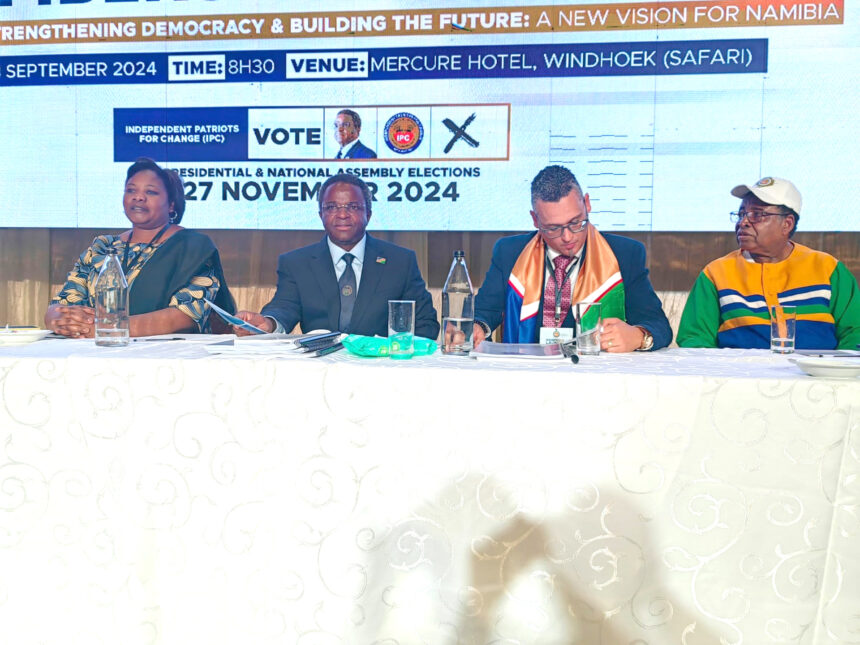The Independent Patriots for Change (IPC) hosted its first-ever National Elective Conference yesterday, marking a milestone for the party as it gears up for the upcoming Presidential and National Assembly elections in November. The event, attended by 112 delegates from all regions, was held to select 96 candidates for the National Assembly.
Speaking at the conference, IPC national spokesperson Imms Nashinge described the process as a reflection of the party’s dedication to inclusivity and transparency.
“This process reflects the IPC’s commitment to inclusive and transparent candidate selection,” Nashinge said. Party president, Panduleni Itula, during his keynote address, elaborated on the candidate selection system, explaining that it aims to prevent regionalism and nepotism.
The party drew its 112 delegates from all 14 regions, with eight representatives from each region.
During the stringent elective process, the delegates were not permitted to vie for votes or vote for themselves or individuals from their regions. To ensure further impartiality, the candidates were assessed by a panel of independent assessors, who ranked them based on merit.
This, Itula said is designed to ensure fair and equitable representation. In his speech, Itula also highlighted the socio-economic challenges Namibia faces, such as high unemployment, inadequate healthcare, and rising gender-based violence.
He emphasised the need for substantial reforms to address these issues, which he attributed to a failure of the current leadership.
Throughout his speech, Itula criticised the current government.
“These issues are a direct result of the current leadership’s failure to address the needs of our people. It is time to confront these challenges with seriousness and commitment,” he said. He also urged the delegates to elect candidates who are committed to transparency, unity, and progress, saying, “We need leaders who will prioritise Namibia’s needs and uphold the principles of integrity and service.”
Political analyst Rui Tyitende, who was also in attendance, praised the IPC’s electoral process, particularly the decision to prohibit voting for candidates from the same region. He called it a necessary measure in combating regionalism and fostering democratic integrity.
However, Tyitende also posed critical questions about the system’s limitations. “What is more interesting is that none of those candidates are allowed to vote for people from their regions, to avoid regionalism and ethnicity, which is something needed in the country’s democracy,” Tyitende remarked.
He continued, “The key fundamental question we need to ask ourselves is what they are advocating for, but the challenge is that what if there is someone from my region who I deem competent not on the basis that they are from my region?”
Tyitende also reflected on the importance of manifestos in the country’s political landscape, noting that while IPC is set to launch tomorrow, the Swapo party had initially communicated their own plans for a manifesto launch.
“I don’t know if it’s a coincidence or deliberate but that is immaterial. The most important thing is the content and substance of those manifestos, their vision for the people, given the fact that there is high unemployment, hunger, and poverty,” Tyitende said.
The names of those who made it on the IPC National Assembly list will be released today.



